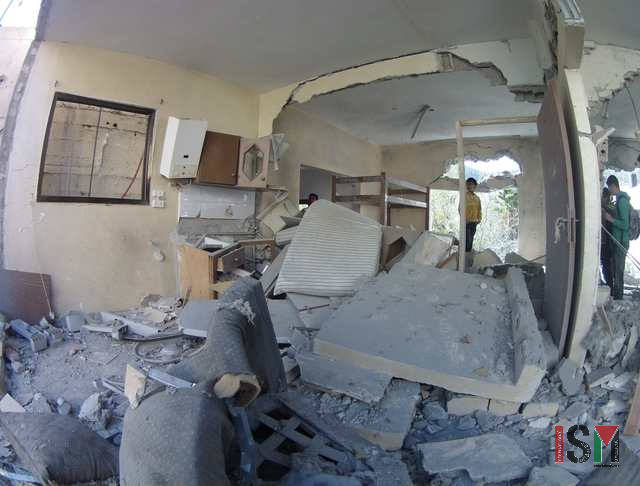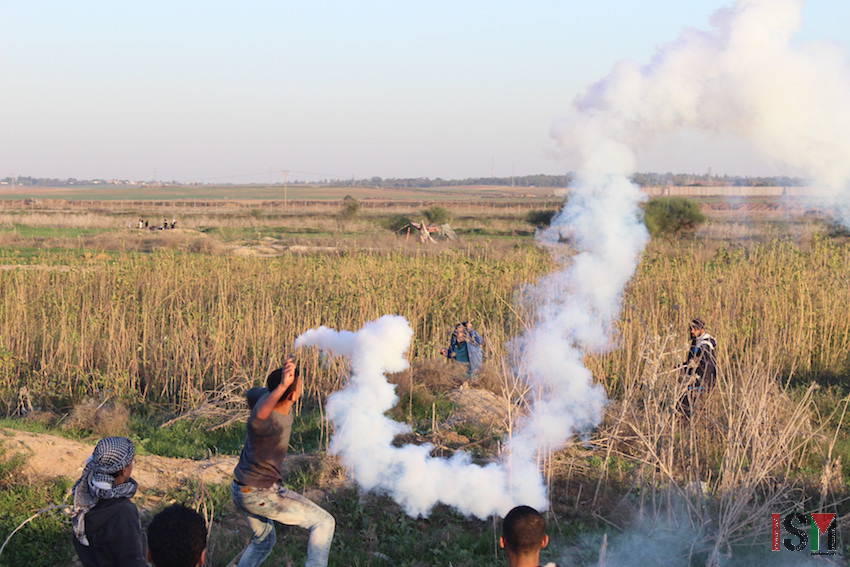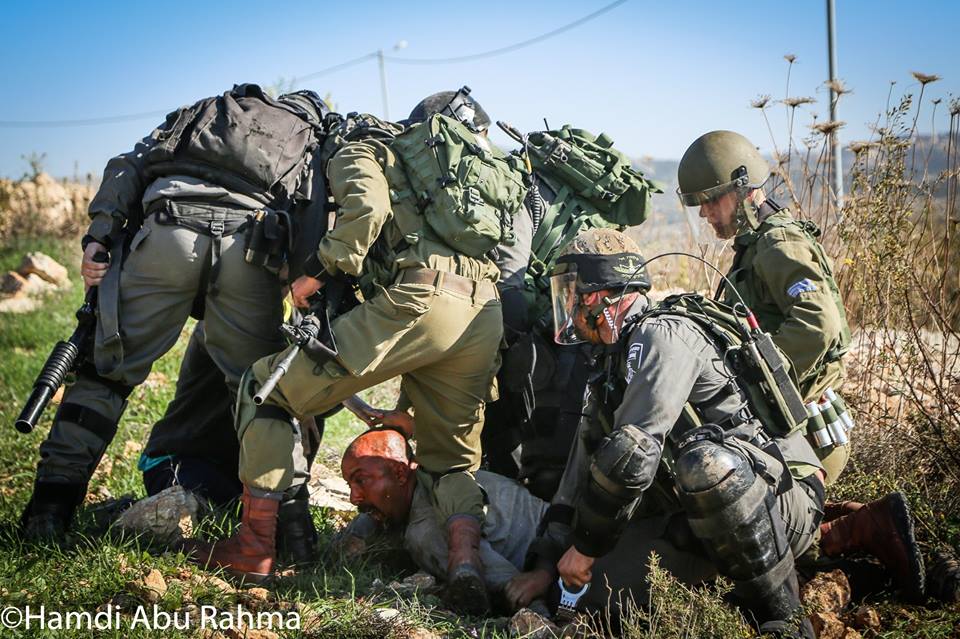Category: Features
-
Four homes demolished in Israeli collective punishment
14th November 2015 | International Solidarity Movement, Nablus Team | Nablus, occupied Palestine Early Saturday morning, November 14th, four homes belonging to Palestinians accused in the killings of two illegal settlers were demolished. Three of the houses were located in the Nablus area belonging to the families of imprisoned Samir Zahir Kusa, Kerem Lufti Razek and…
-
Demonstrations in Gaza violently met by Israeli Forces
14th November 2015 | International Solidarity Movement, Gaza Team | Gaza, occupied Palestine In Gaza today, November the 13th, protestors all over Gaza aproached the fence that encloses them in a small strip of land. In the Erez border crossing (Beit Hanoun), Nahel Oz (Shijaia), Karni border crossing, and Bureij and Abassan (Khan Younis) confrontations errupted, leaving at least 18 young…
-
Internationals and Palestinian arrested in Bil’in demonstration
13th November 2015 | International Solidarity Movement, Nablus team | Nablus, occupied Palestine Update: 15th November 2015 | International Solidarity Movement, Nablus Team | Nablus, occupied Palestine Four human rights defenders arrested in Bil’in on 13th November when peacefully observing a demonstration against the apartheid wall have been let out on bail. All were held…



